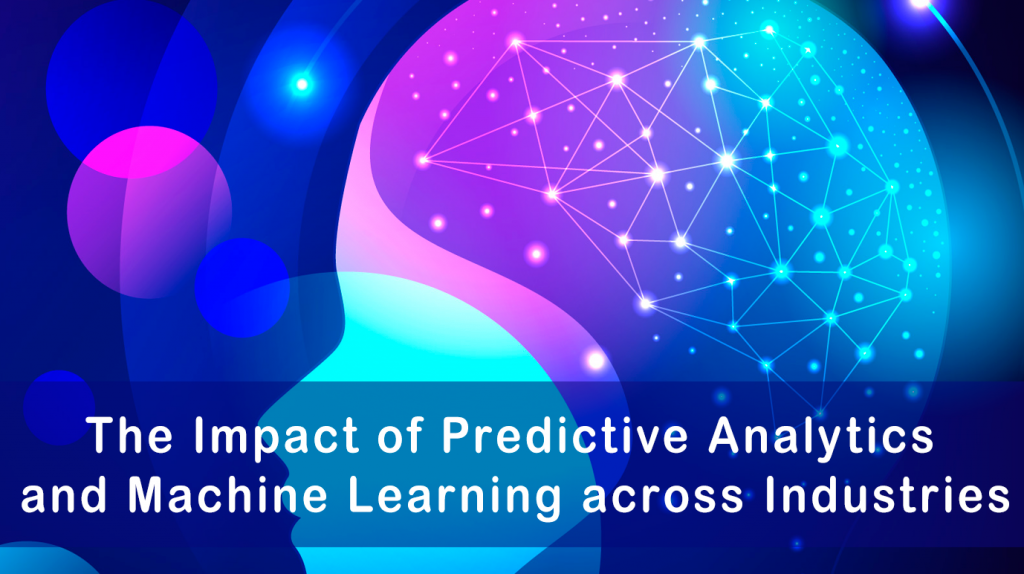
In this Digital Age, the hunt for rapid development of forward-looking solutions is ever-present. Machine Learning and Predictive Analytics provide businesses with a competitive advantage. Using these tools, allows for more regular updates and efficient decision-making, as it provides faster analysis of large amounts of data and prediction models at a moment’s notice.
Currently, there are many computer programs out there that use Machine Learning, to help with everyday product applications and business processes. They understand spoken language, can interpret texts, recognize objects in photos, and/or support us as personal assistants. In contrast to previous technical systems, their reactions are not strictly that of programmed individually, but ever-evolving machines.
You may be thinking, “How do machines learn?” If humans can learn through practice, so can machines. Here, a computer program can be used to adapt to data so that it reacts in a certain way, called a Model Formulation. This means it receives an input and performs a given calculation to produce an output. For example, the input can be an image of pixels, a sequence of tones in a voice message, or text of words and letters. This input is converted into a series of numbers which is then processed by the model. The output is again a vector of numbers that describes the desired result.
According to the researchers, the function of a Machine Learning system can be broken up into 3 sections. Descriptive, meaning the system uses the data to explain what happened; Predictive, meaning the system uses the data to predict what will happen; and Prescriptive, meaning the system uses the data to suggest what action to take.
Now, let’s discuss how Predictive Analytics in Machine Learning helps you across industries.
What is Predictive Analytics?
Predictive Analytics is nothing but the use of statistics and modeling techniques to foresee the future market based on performances and outcomes. Predictive Analytics is a subset of data analysis. It allows the investors and business owners to make wise decisions with the prediction of future events, and their resources and take likely actions based on the requirements. Also, companies can find the risks and opportunities within their organization.
Recently, companies have been flooded with numerous data including images, videos and data files stored in a data repository. To extract the needed information, scientists use Deep Learning and Machine Learning algorithms to make predictions about future events.
Predictive Analytics in Industries
Predictive Analytics is widespread across various sectors, and we can have a look into the prominent ones.
Banking – Financial services such as banking requires Predictive Analytics for fraud detection. As cashless transactions have taken a conventional approach, the platforms developed by the banking services in line with Machine Learning are far more advanced. For example, if a customer opts for a loan, the platform will go through the CIBIL score and other eligibility details of the customer and push for dispersal instantly without involving complex steps.
Healthcare - Machine Learning helps medical professionals to analyze the presence of the disease through modern diagnostic tools. Medical data, such as test reports or medical imaging (CT/MRI scans), can easily be evaluated by physicians leading to improved patient care.
Medication discovery has been one of the greatest advantages of having Machine Learning in healthcare. Through Machine Learning, you can unveil new medications in a shorter period with the results obtained and formulate a new one by avoiding the side effects. This aids in the recovery of various kinds of ailments.
Marketing & Sales – Predictive Analytics provides an inside report of the sales performance and encourages the sales teams to be proactive with their customer engagements. It helps identify unhappy clients earlier and aids in building strong retention rates. It also helps the marketing prospects to focus on the cross-selling options through the recommendation engine on the websites.
Supply Chain – Supply Chain has been one vast area where Predictive Analytics makes a huge impact. With data analysis of the past and current trends, you can easily enhance demand forecasting. Also, you can effectively predict the pricing for the services with dynamic pricing features forecasting demand. Many ride-hailing companies like Uber, Ola, Lyft, etc. are using dynamic pricing features in their on-demand platform for fare adjustments during peak and normal hours.
Inventory management is another segment where Predictive Analytics prevails largely, with the current stock levels to those in demand. Also, the supply chain managers/supervisors could manage the stocks location-wise either locally, centrally, or regionally.
Summing it up:
Predictive Analytics in Machine Learning is a huge leap in the industry based on technology that enables stakeholders to have foresight on their resources or directions and how effectively they could plan strategies for a great outcome.
Karya Technologies are a pioneer in Machine Learning technologies and have been in the field for more than a decade. It offers a user-friendly interface that throws light on all your services and provides actionable insights on what works well and the things that need revision. For more details, please visit https://www.karyatech.com/.